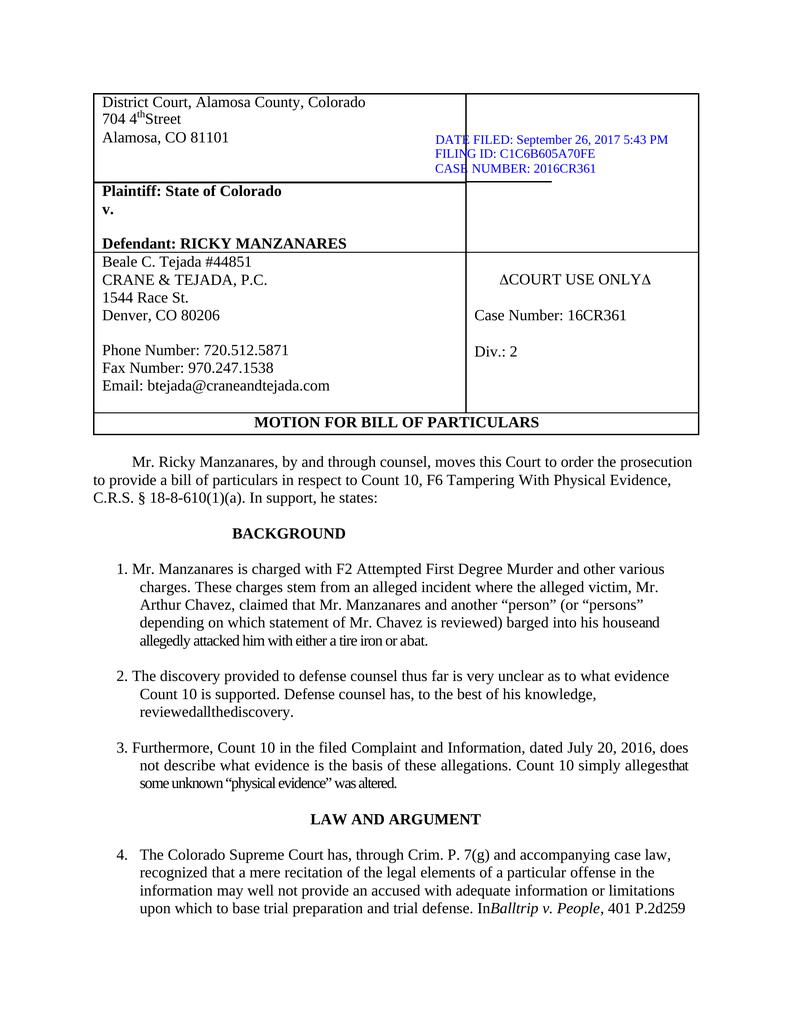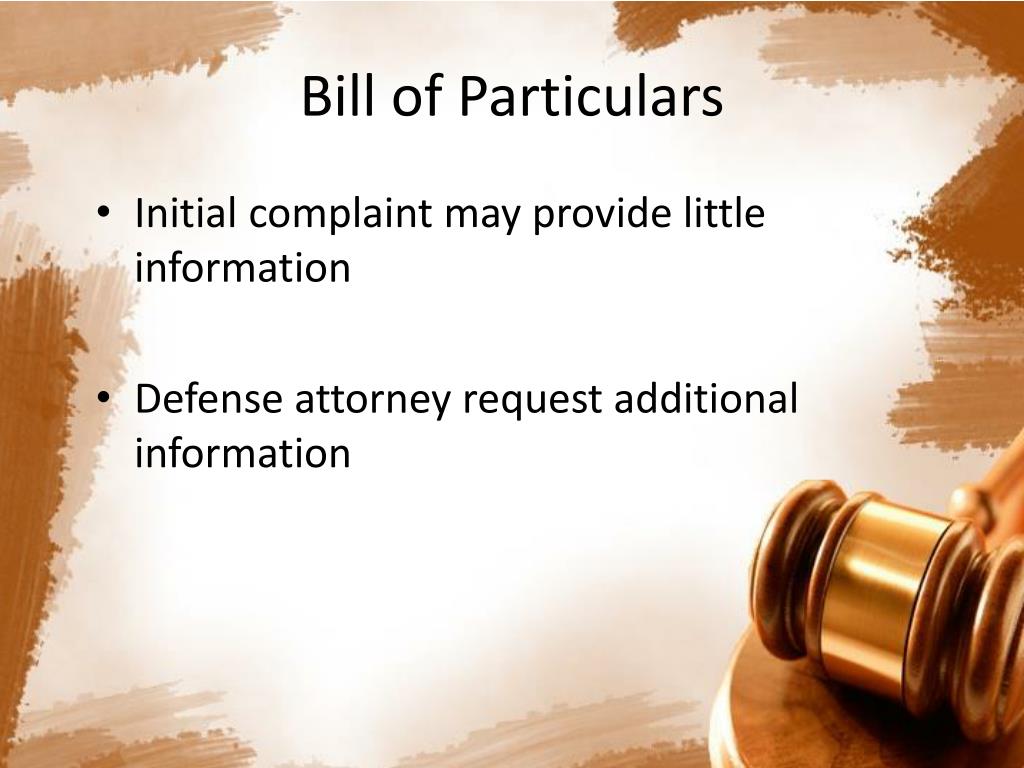
It is this perspective and the relation of the factual information to the offense charged that satisfies the form in substance of a bill of particulars. Discovery does not particularize or relate the factual information contained therein to the offense charged.
#Sample bill of particulars full
While such discovery may contain the full facts of the case, when a defendant is charged using a short form indictment it is not and cannot be, a substitute, or satisfy a demand, for a bill of particulars. It specifically stated “discovery, even open file discovery, that includes police reports and witness statements, is not the same and cannot substitute for a legally sufficient bill of particulars.

In so doing, the COA noted that the State had switched the burden to the defendant to identify the facts underlying the indictment. In Dzikowski the COA held that the State violated CL section 3-206(d)(5) when it responded to the defendant’s bill of particulars by simply directing him to the discovery that had been provided. When required, a bill of particulars, therefore, must, at the very least, provide the defendant with “a means of ascertaining the exact factual situation upon which he or she was charged.”

Upon review, the rationale used by the COA in enforcing the statutory right to a bill of particulars appears equally applicable to circumstances where a bill of particulars is filed under Maryland Rule 4-241, most specifically in those cases where the indictment or charging document is general in nature or in a statutory short form, even where the authority for the use of the short form does not also include the statutory right to demand particulars.Ī charging document must satisfy the requirements imposed by Article 21 of the Maryland Declaration of Rights that each person charged with a crime be informed of the accusation against him by “first characterizing the crime and second, by so describing it as to inform the accused of the specific conduct with which he is charged.” The COA noted that statutes permitting a short form of indictment, where the simplified form contains the essential elements of the crime it purports to charge, are generally upheld on the ground that the right of the defendant to demand particulars of the accusation protects him against lack of notice. In Dzikowski the focus was on the statute which permitted charging reckless endangerment in a short form and also included a statutory provision providing that a defendant was entitled to a bill of particulars. The COA provided guidance on the parameters of a legally sufficient bill, finding that “discovery” does not pass constitutional muster in terms of notice of a charge. The COA reviewed the statutory entitlement to a bill of particulars as to the charge of reckless endangerment in the Dzikowski case and concluded that the State’s response to the defendant’s demand was legally insufficient.
#Sample bill of particulars trial
Some criminal statutes provide for mandatory bills of particulars and other statutes, with no specific statutory entitlement to a bill of particulars, call upon the trial court to exercise its discretion in deciding whether or not to grant a defendant’s request for a bill of particulars. The COA in Dzikowski held that merely directing a defendant to look to the discovery provided by the State cannot suffice as a substitute for a legally sufficient bill of particulars pursuant to CL 3-206(d)(5). The COA answered that question in the negative and found that the trial court abused its discretion with resulting prejudice to the defendant when it denied Dzikowski’s exceptions to the State’s nonspecific responses to the question posed in his demand for a bill of particulars.

The question before the COA in Dzikowski was whether the State’s response to the defendant’s request for a bill of particulars met the statutory requirement if it merely directed the defendant to look to the discovery the State has provided where a defendant, upon timely request, is statutorily guaranteed a bill of particulars detailing the allegations against him and the factual basis of those allegations. State, 2013 WL 6850029 (12-30-13) the Court of Appeals has infused new vitality into the use of a bill of particulars as a tool to ensure constitutional notice to one charged with a crime where a charging document has been drafted using the statutory short form or is otherwise very general in it allegations. THE BILL OF PARTICULARS – ALIVE AND KICKIN’ AGAIN! The Bill of Particulars – Alive and Kickin’!


 0 kommentar(er)
0 kommentar(er)
